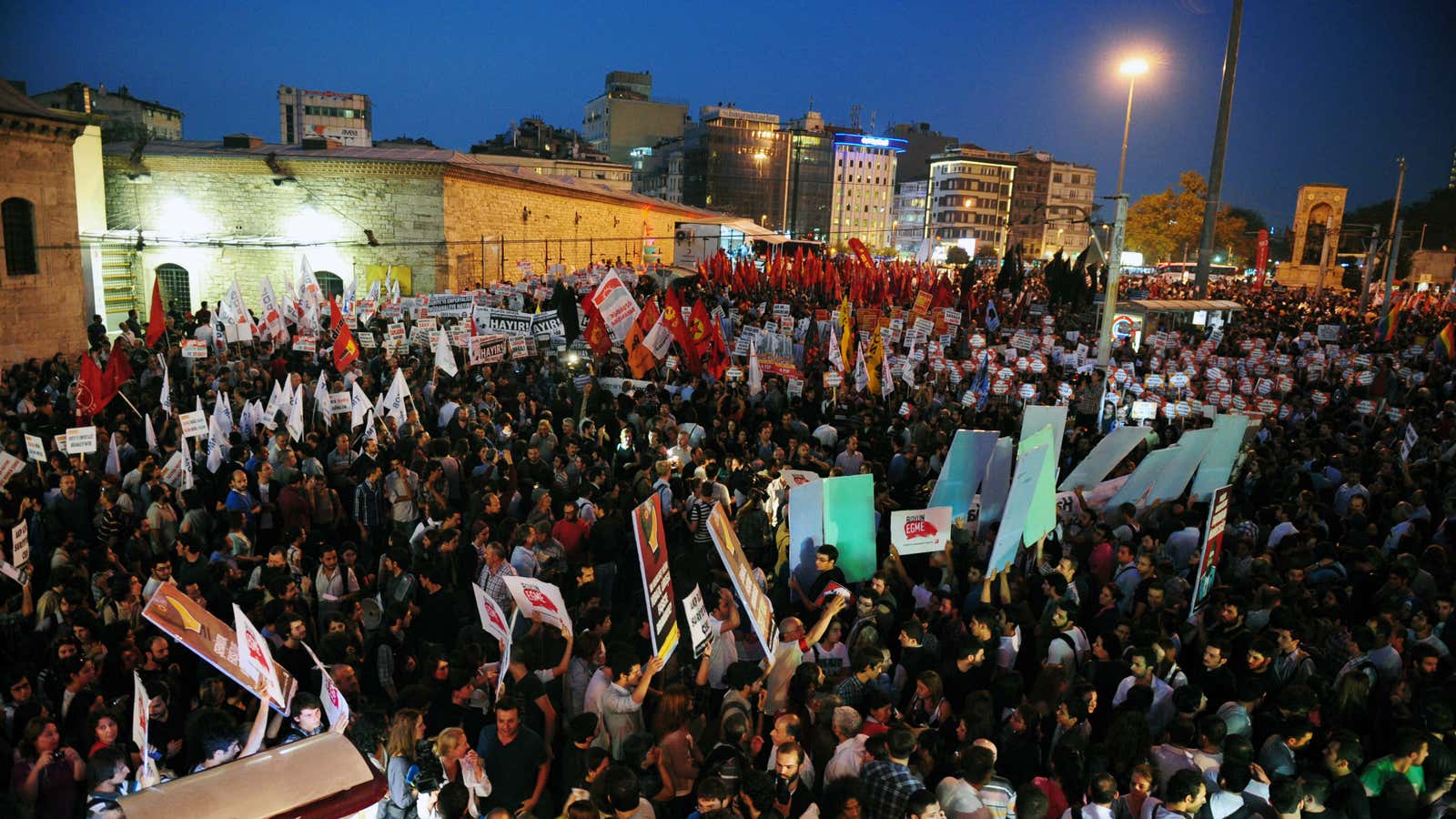We are entrepreneurs. We work day and night for years to turn our dreams into a reality that we hope will transform society and improve lives. War is the complete opposite. It can destroy those things we dream of in a single day.
Today, I was at Webrazzi Summit, a startup conference in Istanbul, Turkey, attended by around 1,200 people from all around the world. I had mixed feelings in the morning on my way to the summit about the shelling that occurred last night on the Syria-Turkey border and ensuing discussions of war. We are very much used to working in an unstable economy with a weak ecosystem where anything could break at anytime. But the prospect of war is something much more daunting.
The atmosphere at the conference today was different from what I expected. Entrepreneurs are naturally courageous–in contrast with those in the corporate environment–and they remain so now insisting that we should focus on building things instead of destroying them. They didn’t believe there was a high chance Turkey would become involved in a large-scale armed conflict with a neighboring country in this case. In fact, as I write this, Syria has apologized and insisted “such an incident would not be repeated.”
Still, we have been shaken. Investors at the conference said foreign direct investment would be seriously affected but didn’t agree it would be the end of business. They cited several examples of other countries where there was war but business continued.
This situation reminds me of the massive earthquake in 1999. I was in Istanbul for a shortbreak from graduate school in the US. Forty hours after the earthquake, I flew back to the US, where I was welcomed at the airport by my panicked roommates and journalists who asked me for my reaction.
That experience taught me that in countries such as the US, such crises make people very scared. People in the US live in a system that usually works well and as an individual you don’t have worry about much. In the emerging world, individuals have to fix things that don’t work by themselves. Hence people tend to react to crises more calmly than their developed-world counterparts.
This is exactly what happens even in the possibility of a war, even as people oppose that very possibility. Entrepreneurs are even calmer, their hearts set on building things.
Last night on Twitter, #savasahayir (translated from Turkish to mean “no war”) was trending globally; and it’s the word on many anti-protesters’ signs.
“We have been living in between two worlds for a long time. One of them is a fast-growing economy, with strong a tech startup environment and strong entrepreneurs,” says Kutlu Kazanci, the co-founder of wedecide.net, an open innovation-based decision platform. “Whereas on the other side, there is this regional political dispute. The Syria-Turkey incident is just the most recent episode. The winds of change have swept through the Middle East and it is clear that Syria will change. I only hope that it will be an organic change.”
Also at the conference, Caglar Erol, an angel investor with several investments in the Middle East-North Africa region, said he thought this dispute wouldn’t become serious. Naturally, he is against war and thinks things will be over quickly. He doesn’t have a Plan B.
Another investor, Numan Numan, the managing director of 212 Venture Capital, was also calm. “All of our investments in Turkey are long term and will take at least six to seven years to exit. If there is a war, of course, it will affect foreign direct investment, as well as our startups, and we will change the nature of our business. But I am not worried at all, as we have seen these things before several times.”
There were guests from different countries and I was curious if they would feel differently. They didn’t. “I did not really feel anything today. People mentioned about the incident but we mostly talked business,” said Omar Christidis, founder of ArabNet, a hub for Arab entrepreneurs based in Beirut. “Politics gets us nowhere. We, as entrepreneurs, should just build companies and make the world a better place.”
He underscored one way to do that, even as political discussions and demonstrations waged outside: “Employing someone,” he said, “is a stronger political act for me than demonstrating on the street.”




